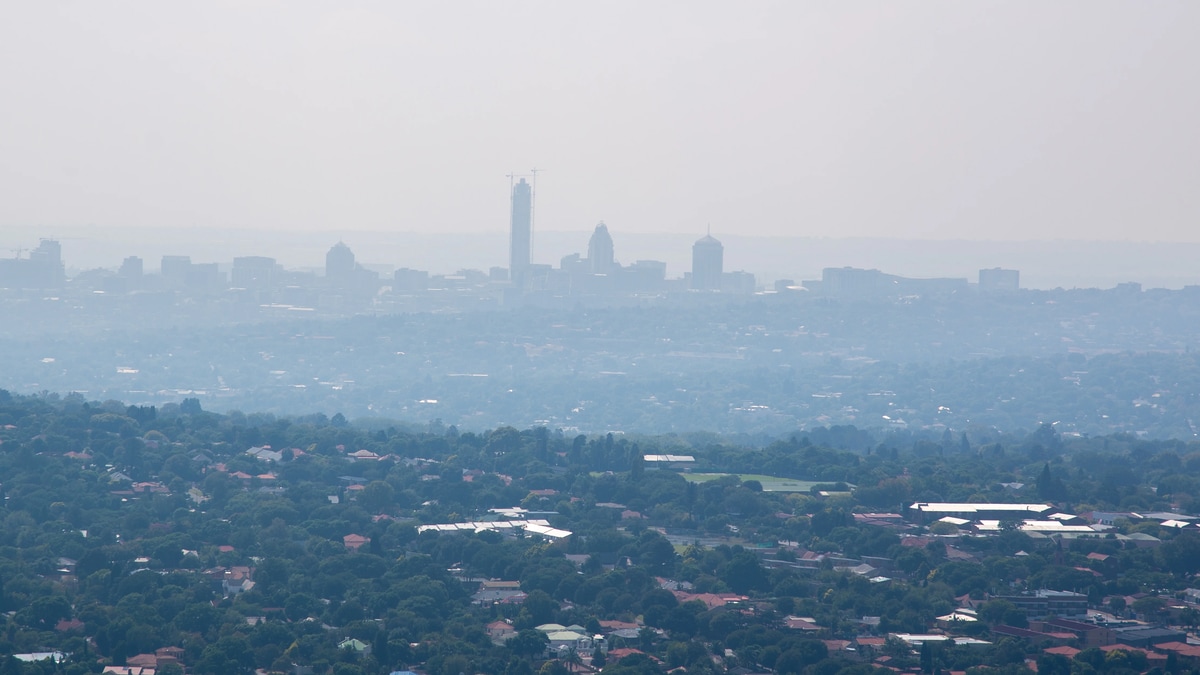Artificial Intelligence
Affordable AI system to tackle one of South Africa’s biggest killers
South African researchers have developed an AI system that uses cheap devices to monitor particles that kill thousands of people every year.

Air quality has emerged as a significant public health concern in Africa, with poor air quality causing more global deaths annually than HIV, TB, and malaria combined.
The adverse effects of air pollution extend beyond health implications, impacting productivity due to symptoms like headaches and fatigue.
India, for instance, grapples with poor air quality, resulting in an annual economic loss of approximately US$100 billion.
While the health risks associated with poor air quality are well-known, establishing monitoring stations for regular assessment has traditionally been costly.
I, a particle physicist and director of the Institute for Collider Particle Physics at the University of the Witwatersrand and iThemba Laboratories for Accelerator Based Sciences, lead a technology transfer initiative. We introduced the South African Consortium of Air Quality Monitoring, comprising interdisciplinary scientists aiming to enhance air quality in South Africa.
Our team developed Ai_r, a pioneering and cost-effective air quality monitoring system in South Africa utilizing sensors, Internet of Things, and Artificial Intelligence technologies.
Comprising 25 experts with over 20 years of experience in particle physics, the team leverages diverse technologies, including electrical engineering, data science, and artificial intelligence.
Currently, South Africa has only 130 major air quality monitoring stations, limiting coverage to station vicinity. To address this limitation, we aim to establish a network of Ai_r systems around these stations for comprehensive air quality assessment.
Using Artificial Intelligence
Ai_r comprises affordable small boxes, costing around US$100 each, which can be mounted on building window sills to collect air samples. These boxes transmit real-time data to a cloud for analysis, leveraging Artificial Intelligence for modeling and forecasting.
Artificial Intelligence, a set of mathematical tools controlled by scientists, harnesses the wealth of sensor data to make informed predictions. For instance, Ai_r can forecast the impact of weather changes on air quality, guiding pollution control measures.
Artificial Intelligence plays a pivotal role in ensuring the cost-effective monitoring and predictive capabilities of the Ai_r system.
Measuring Air Quality in Johannesburg
The focus of air quality monitoring is identifying hotspots of poor air quality, rather than just average city-wide assessment. Hotspots of pollution can be geographically close to areas with better air quality.
To safeguard public health, understanding and predicting daily air quality variations are crucial for effective pollution control strategies.
We have deployed approximately 20 Ai_r devices in Soweto and Braamfontein in Johannesburg, with plans for 120 more installations in the coming months.
Given the high vehicular traffic in these areas, the risk of air pollution is significant, necessitating precise monitoring.
Air quality sensors have also been placed at academic institutions and hospitals, with plans to expand to schools and other public facilities.
The Ai_r system primarily measures particulate matter 2.5, tiny pollutants that pose health risks when inhaled, contributing to heart diseases, cancer, and other illnesses.
How It Works
The air quality device housed in a box utilizes a laser to measure particulate concentration in the air. These measurements are then transmitted via IoT technologies to a cloud-based system for storage and analysis every five minutes.
The devices are designed for low energy consumption, with cost-effective batteries for backup during power outages, ensuring continuous monitoring.
With easy maintenance and affordability, the Ai_r system aims to expand across South Africa, becoming the largest automated air quality measurement network in Africa by the end of 2024.
Accurate pollution measurement is crucial for designing targeted strategies to enhance air quality, particularly in areas most affected by pollution.
(The author acknowledges the support of South Africa’s Department of Science and Innovation, the National Research Foundation, the Canadian International Development Research Centre, and the Clean Air Fund.)
Bruce Mellado, Professor of Physics, University of the Witwatersrand
This article is republished from The Conversation under a Creative Commons license. Read the original article.















